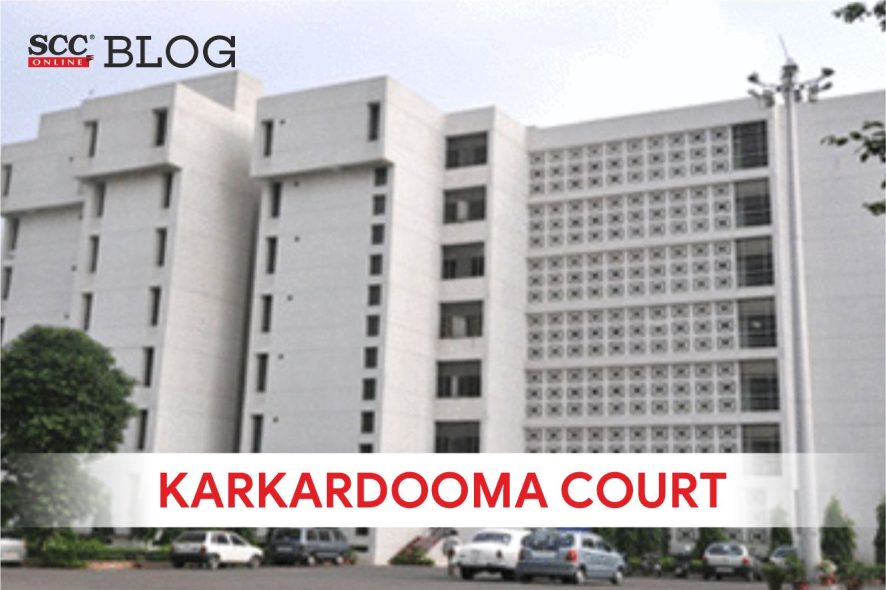Karkardooma Court, Delhi: In a bail application moved on behalf of applicant/accused Saleem Malik @ Munna under Section 437 Code of Criminal Procedure (CrPC) who was arrested under Section 147, 148, 149, 427, 423, 436, 120-B Penal Code, 1860 (IPC) for conspiracy of North-East Delhi riots as part of the CAA-NRC protests that took place on the same day when the then, US President Donald Trump visited India , Amitabh Rawat, J. denied bail to the applicant-accused as the statements of the witnesses show sufficient incriminating material against the present accused Saleem Malik.
Submission
Counsel for State submitted that in the present case, the bar of Section 43-D (5) UAPA for grant of bail would apply as prima facie allegations against the accused are true and the further embargo is created due to Section 437 (1) CrPC.
Observations
The Court noted that Section 437 CrPC places an additional condition before releasing a person on bail if there are reasonable grounds for believing that accused has been guilty of offence punishable with death or imprisonment for life and the present case also involves the applicability of Unlawful Activities (Prevention) Act. Thus, if the court is of the opinion on the perusal of the charge sheet that there are reasonable grounds for believing that the accusation against such person is prima facie true, then, as per this provision, accused shall not be released on bail.
Reliance was placed on National Investigating Agency v. Zahoor Ahmad Shah Watalli, (2019) 5 SCC 1, wherein it was observed that the Court is merely expected to record a finding on the basis of broad probabilities regarding the involvement of the accused in the commission of the stated offence or otherwise. For that, the totality of the material gathered by the Investigating Agency and presented along with the report and including the case diary, is required to be reckoned and not by analysing individual pieces of evidence or circumstance.
Reliance was further placed on Thwaha Fasal v. Union of India, 2021 SCC OnLine SC 1000, wherein it was observed that the elaborate examination or dissection of the evidence is not required to be done at this stage. The Court is merely expected to record a finding on the basis of broad probabilities regarding the involvement of the accused in the commission of the stated offence or otherwise. The Court is not supposed to examine the merits and demerits of the evidence. If a charge sheet is already filed, the Court has to examine the material forming a part of charge sheet for deciding the issue whether there are reasonable grounds for believing that the accusation against such a person is prima facie true. While doing so, the Court has to take the material in the charge sheet as it is.
Analysis
The Court opined that the present case pertains to a conspiracy for constituting a conspiracy, meeting of minds of two or more persons for doing an illegal act or any act by illegal means is the condition and it is not at all necessary that all the conspirators must know each and every detail of the conspiracy. It is also not necessary that every one of the conspirators must take active part in commission of each and every conspiratorial act. The existence of conspiracy and its object are normally deduced from the circumstances of the case and the conduct of the accused involved in the conspiracy.
The Court observed that in the present case, as per the chargesheet, there was a premeditated conspiracy of the disruptive chakkajam and a preplanned protest at different planned sites in Delhi which was to escalate and incitement to violence and resulting in riots. There was intentional blocking of roads to cause inconvenience and to cause disruption of the essential services to the life of community residing in NorthEast Delhi, causing violence with various means. The weapons used, manner of attack and the destruction caused shows it to be preplanned. Acts which threaten the unity and integrity of India and causes friction in communal harmony and creates terror in any section of the people, by making them feel surrounded resulting in violence, is also a terrorist act.
Role of Saleem Malik
According to the statement of protected witness and as per the charge sheet, at the time of the riots, accused Saleem Malik was present in North East Delhi and was connected with accused persons namely Saleem Khan, Athar, Shadab and Suleman (Proclaimed Offender). He also took part in the conspiracy. It is not necessary that in a case of a conspiracy, every accused should play part in every aspect of the conspiracy.
Decision
Thus, in view of the perusal of the chargesheet, accompanying documents and the statements of all the witnesses whose veracity will be tested at the time of cross-examination sufficient incriminating material against the present accused Saleem Malik is shown, thus the Court held allegations against the accused Saleem Malik are prima facie true thereby denied him bail.
[State v. Tahir Hussain (Bail application of Saleem Malik), 2022 SCC OnLine Dis Crt (Del) 44, decided on 06-10-2022]
Advocates who appeared in this case:
For accused: Advocate Bilal Anwar Khan
For State: Special Public Prosecutor Amit Prasad
*Arunima Bose, Editorial Assistant has put this report together.







